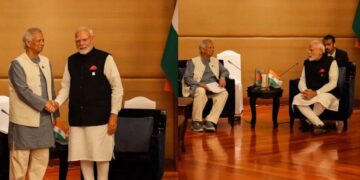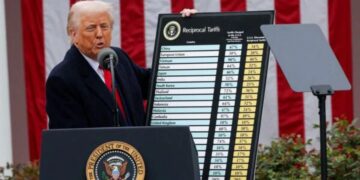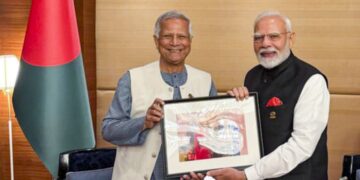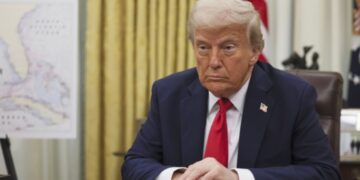Japan and the European Union (EU) are set to forge agreements aimed at strengthening economic security, specifically focusing on boosting supply chain resilience for pivotal materials like semiconductors. The move, as reported by Japanese news media, aims to reduce dependency on countries such as China.
According to government sources cited in the report, leaders from Japan and the 27-nation EU bloc are working towards issuing a joint statement endorsing the establishment of transparent, resilient, and sustainable supply chains.
This initiative will be highlighted at the upcoming Japan-EU High-level Economic Dialogue scheduled to take place in Paris in early May.
Japan’s efforts to fortify partnerships with its political allies stem from the need to navigate through geopolitical and economic challenges, including Russia’s conflict with Ukraine and escalating tensions with China.
The economic dialogue, slated to be attended by high-ranking officials such as Japanese Foreign Minister Yoko Kamikawa and Industry Minister Ken Saito. They will also see representation from the EU, with Valdis Dombrovskis, the executive vice president of the European Commission, expected to participate.
This collaborative move is envisioned as a strategic response to counter China’s expanding market influence, particularly in sectors such as semiconductor production, electric vehicles, and solar panels.
Earlier engagements between Japanese Prime Minister Fumio Kishida and US President Joe Biden underscored a shared commitment to strengthening cooperation in supply chain resilience and other critical areas in light of China’s ambitions.
President Biden reaffirmed the United States’ unwavering defense commitments to Japan and the Philippines during the first-ever trilateral summit between the three countries. The summit, which welcomed Filipino President Ferdinand Marcos Jr to the White House, underscores the growing strategic partnerships in the Indo-Pacific region.
These alliances, including the Quad (comprising Bharat, the US, Australia, and Japan) and AUKUS (consisting of Australia, the US, and the UK), have emerged amidst mounting concerns over China’s assertive military actions in the region.
China’s claims over territories like the shoal, located within the Philippines’ exclusive economic zone, have been met with international scrutiny, particularly in light of an international arbitration ruling disregarded by China.
Japan and the EU’s collaborative efforts, along with strengthened alliances in the Indo-Pacific, reflect a broader strategy to navigate complex geopolitical dynamics and safeguard economic interests amid rising tensions with China.

















Comments